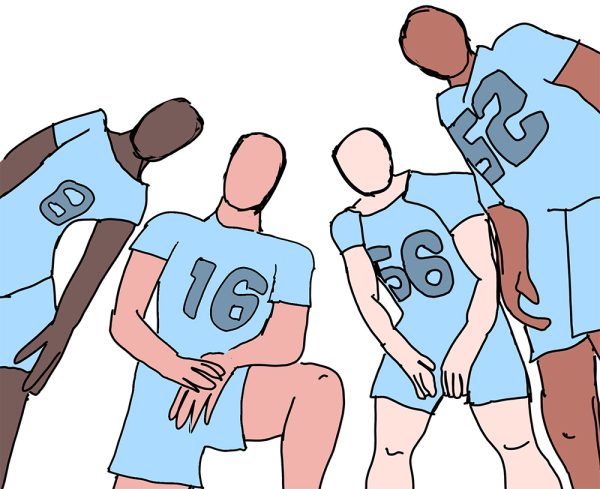Gender-affirming care, a necessity for transgender youth
With gender-affirming care being quickly and ruthlessly banned around our country, the question of whether youth need this care has come into the spotlight. After reviewing data, speaking to individuals, and hearing counter arguments, it’s impossible to say that it’s not necessary.
A 2017 study by the National Library of Medicine found that among 104 transgender youths aged 13-20, about 50 percent suffered from depression and/or anxiety. Almost 43 percent had experienced self harm or suicidal thoughts. The same study also found that after receiving some form of gender-affirming care, the youths experienced a 60 percent lower risk of depression, and 73 percent less suicidal ideations.
Students here are experiencing body dysmorphia everyday, and gender-affirming medical care is one of the many solutions they’re searching for. An anonymous student believes a medical transition is a necessity for them. They state that without such procedures, their body feels alien to them.
“At least with my chest, it’s definitely something that just shouldn’t be there,” they said. “And it’s something that’s really physically uncomfortable. And not being able to swim in the summer with your shirt off and be with my friends like that is so uncomfortable for me.”
Cases like these are why medical transitions can be so important. But these types of procedures are being rapidly banned around the country. At least 50 anti-trans bills have been passed this year alone. We the people need to understand why this is not okay. These bills are discriminatory and prevent individuals from getting life-saving care.
Freshman Ada Gallagher, a transgender woman, said that hormone therapy is not only something that she wants, but something that will help them feel comfortable in her own body.
“I feel like it’ll make me a lot more confident,” Gallagher said. “Because right now I’m just going to keep on getting more and more masculine. More facial hair, stuff like that. And I don’t want that. Estrogen and other hormones and getting vocal training would make me a lot happier and more confident.”
This is the case for not only students here, but teens all over the country. Yet everyday it seems like we see more and more unempathetic bills and regulations limiting this care.
Recently, Florida introduced bill 254, a bill that if passed, allows transgender children to be taken away from their family if they are receiving gender-affirming care in any way. It compares gender-affirming care to child abuse, the bill stated “for purposes of warrants to take physical custody of a child in certain child custody enforcement proceedings, serious physical harm to the child includes, but is not limited to, being subjected to sex-reassignment prescriptions or procedures.”
This law could not only endanger children by taking them away from their families, but sets a precedent for other states to follow.
Emily R, a social worker who advocates for issues of the LGBTQ+ community, said that we need to be harsher on these types of laws, as they restrict necessary medical care to those in need.
“We have so much available data showing that gender-affirming care is life saving care and needs to be available to trans youth. It needs to remain available and have expanded and safe access,” R stated. “I firmly believe that legislation needs to codify the refusal of care as it pertains to trans issues such as medical neglect, like the refusal of any necessary medical care, so that trans youth have a safety net, especially if they are experiencing significant gender dysphoria.”
While not every transgender person may want medical intervention in order to be fulfilled in their transition, it can be life saving for those who do. Which is why we need to keep these options open and available. The recent limiting of these procedures is a failure by our government. As a people, Americans need to be aware of how to help those in need of it.

Valentine Lindsey (he/him) is a senior who likes writing reviews on movies, shows, and games. You can often find him in dark corners of the school.







